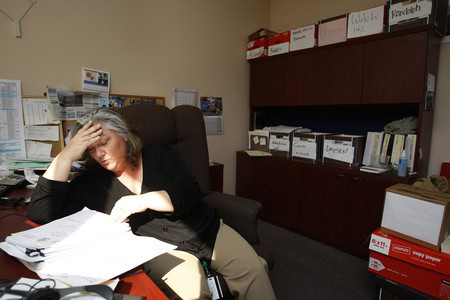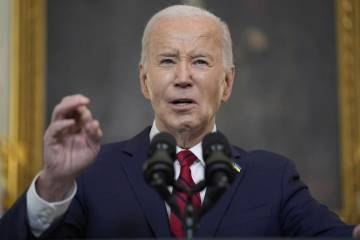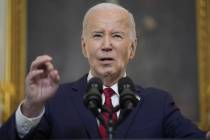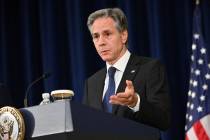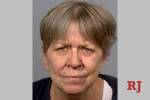State panel debates limits
Court officials, equal-justice advocates, and county managers agree that action is needed to address a severe shortage of public defenders in Clark and Washoe counties.
But at a Tuesday meeting of the state's indigent defense commission, they clashed on the details.
Still in dispute in the weeks leading up to a critical Nevada Supreme Court hearing on the matter is whether the state's high court should order caseload limits or another form of relief for lawyers, who according to a recent report, are too overburdened to give "competent and diligent" counsel to indigent defendants.
The July report from the Spangenberg Group and the Center for Justice, Law, and Society at George Mason University said the Clark County public defender's office needs up to 90 more lawyers to handle its caseload. Washoe County needs as many as 28 more public defenders, the report said.
These findings have renewed concerns that public defender systems in Nevada fail to meet constitutional standards.
Though the Spangenberg report fell short of proposing specific caseload caps, it noted that Clark County public defenders each have about 215 felony cases per year, a number that far exceeds American Bar Association standards.
At Tuesday's commission meeting, Justice of the Peace Ann Zimmerman, chief judge for the Las Vegas Justice Court, said she sees the caseload problem on a daily basis.
"It's obvious that the public defender's office needs far more attorneys than it currently has," Zimmerman said.
It was thought that the Spangenberg report, which was commissioned last year by Clark and Washoe counties at the behest of the Supreme Court, would once and for all settle the question of whether caseload limits are necessary.
But, if anything, the debate has only heightened, for reasons ranging from criticism of the Spangenberg report's scope and methodology to fundamental opposition toward the idea of Supreme Court-mandated caseload caps.
At a public hearing set for Oct. 6, indigent defense commission members will make recommendations to the Supreme Court, which can issue orders or enact rule changes. Based on the disagreements at Tuesday's meeting, it is unlikely that the commission will speak with a united voice at the hearing.
Chief Deputy District Attorney Nancy Becker, a member of the indigent defense commission, said on Tuesday that only the Nevada Legislature has authority to mandate caseload limits.
Assistant Clark County Manager Jeff Wells, another critic of caseload limits, told commission members that the county, as a short-term solution, is working to add several attorneys to murder and sexual assault teams in the county public defender's office.
But Clark County Public Defender Phil Kohn said he doesn't see any quick fixes to big problems.
"The district attorneys can handle (their caseloads) no better than we can in terms of doing justice," Kohn said on Tuesday. "We need to look at a system-wide approach to this problem real quick."
As an alternative to caseload caps, the Supreme Court could also consider allowing public defenders to start refusing cases, several commission members said at the meeting.
Federal Public Defender Franny Forsman said that option depends on setting caseload limits, even if they are only on an interim basis.
"There has to be a mechanism where public defenders can determine they've hit a wall on cases," Forsman said. "How do we do that if we don't adopt numbers?"
State Public Defender Diane Crow said she got an answer to Forsman's question when she recently asked a district court judge in rural Nevada to allow one of her attorneys to decline an appointment.
"The district judge said we need caseload standards before I can allow you to refuse a case," she said.
Contact reporter Alan Maimon at amaimon@reviewjournal.com or 702-383-0404.



